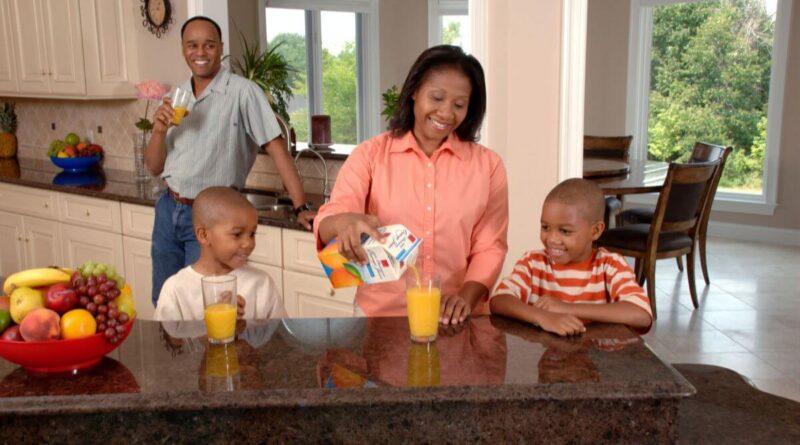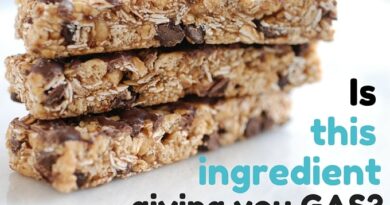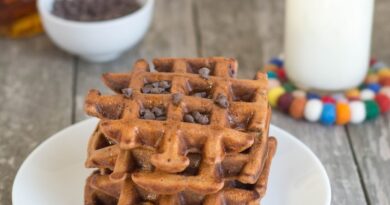Toddler breakfast ideas – 50 suggestions for busy parents
Coming up with healthy toddler breakfast ideas can be a struggle amidst the hustle and bustle of everyday life, yet we know that breakfast is the most important meal of the day. In this blog I’ll give you 50 ideas suitable for toddler breakfasts that are ideal for busy parents.
As its name suggests breakfast all about ‘breaking the overnight fast’ and refuelling your toddlers body with the energy and nutrients they need for their daily activities, learning and growth.
This blog contains affiliate links.

Understanding Toddler Nutrition
Before we leap into our 50 breakfast ideas, let’s take a quick detour into toddler nutrition.
After all, as parents, we want to ensure the food we provide isn’t just tasty but also fuels their growth and development.
Here is how to plan the nutrition in your toddlers meals:

Non dairy proteins
Protein at breakfast is often a missed opportunity and I think it’s best to make the protein component the foundation of all of your toddlers meals, including breakfast.
Protein foods include meat and fish, beans, eggs, pulses, and nuts.
They are essential for growth and so are especially important in young children. But the reason I place a greater importance on proteins is that they often come packaged up with lots of other really handy nutrients like iron, and zinc.
You might be thinking that you don’t have time to prepare these sorts of foods for your toddler in the earlier hours of the day but breakfast it’s an ideal time to use leftovers that you’ve saved from previous meals.
And think outside the box, breakfast doesn’t have to mean cereal and toast. Eggs are the obvious choice but think baked beans, peanut butter and even leftover cold meats.

Starchy carbs
This food group provides energy to fuel your child. It includes bread, pasta, rice, potatoes, grains such as oats, and cereals.
Breakfasts are often focussed on carbohydrates but from a nutrition perspective it should be the side, not the main.
As humans we also tend to eat the same food every morning, I encourage you to spice things up a bit as variety at breakfast time is so important.

Fruit and veg
Like adults, children should have at least 5 portions of fruit and vegetables per day, including frozen, tinned, dried, and fresh variations. For toddlers a serving is tiny, about what fits in the palm of their hand.
An easy way to give your little one some choice over their breakfast options is by offering two options from this food group, for example “would you like strawberries or blueberries with your porridge?” or “would you like pepper or cucumber sticks with your omelette?”.

Dairy
This food group includes milk, yoghurt and cheese. Children should have whole or full-fat versions of these while they’re so young.
This food group also happens to be a source of protein, so if you are struggling to find a protein food to base breakfast on, dairy foods can be an excellent back-up.
They also contain calcium, which is needed for rapidly growing bones.

Fats and oils
What we aim for here is a small addition to breakfast which will give your toddler essential nutrients that are good for brain and eye development, linked to heart health and also support their growth.
Choose healthy oils such as a drizzle of rapeseed oil or olive oil on a savoury breakfast, a few slices of avocado with their toast, a spread of nut butter or olive spread, or a sprinkle of ground nuts and seeds.
What about drinks?
I think we all know that water is best for hydration but it’s OK to offer milk as a drink too.
Think of milk as a ‘food’ as it’s so nutritious, and offer it as part of a meal or snack rather than in between times. This will help your toddler regulate their appetite.
Fruit juice and smoothies can be offered too but limit to 150 ml once a day as these contain ‘free sugars’ which aren’t great for young teeth.

Do toddlers need supplements?
As a general rule, the only supplement all children from the age of 6 months to 5 years should be taking is a multivitamin containing vitamins A, C and D.
Most toddlers will be able to get the majority of the nutrition they need from their diet without the need for additional supplements but if you are concerned they are falling short, talk to a specialist dietitian who can recommend the right multivitamin for your child.

Picky Eating in Toddlers
Feeding a toddler isn’t always the easiest job. It can be exhausting and stressful especially if you have a fussy eater.
Picky eating is a common phase most toddlers go through but for some it can be quite extreme where they only accept a few foods or it may go on for a number of years.
If you are not sure if your picky eater is just fussy or it’s something to be concerned about you can take my quiz called ‘Picky Eater Or Problem Feeder’ and get some first steps to take to help them improve.

What should I do if my toddler refuses breakfast?
If your toddler refuses their breakfast now and again, that’s okay!
As long as you have a regular meal and snack routine you can be rest assured that they’ll get another opportunity to eat again in just a couple of hours.
If you have a picky eater and breakfast is refused often, just check what time they eat or drink the night before. Toddlers need at least 12 hours before their last snack or drink and breakfast.
The same goes for milk on waking. Skip it and go straight to the breakfast table.
Always ensure that there is familiar food on offer at breakfast so your toddler comes to the table feeling reassured that it won’t be full of new food, which can feel frightening to some little people.

What if my toddler requests the same breakfast every day?
Offering the same food everyday will make fussy eating worse and can lead to nutritional deficiencies from having a reduced variety of foods.
Children are not good nutrition decision makers, (they don’t know what they don’t know) and if left to their own choices will always choose their favourite foods.
Take back this role and instead of asking “what do you want for breakfast today?” offer them 2 or 3 nutritious options to choose from.

What if my toddler doesn’t eat enough?
Not eating enough can be a huge worry as it can lead to growth and health problems.
Depending on how severe the problem is, you might need 1:1 support from a healthcare professional such as a paediatrician to make sure that there are no medical reasons affecting appetite.
You may also want to see a paediatric dietitian who can check that you are offering the right foods to optimise their appetite and give you a ton of toddler breakfast ideas.
You can be ‘too-healthy’ when feeding kids. What’s healthy for adults isn’t the same as what’s healthy for toddlers.
A good place to start is to check your expectations, have you seen my toddler portion size guide? Often we as parents overestimate what they actually need (hint: it’s less food than what they ate as a baby!)

How to make breakfast interesting?
Toddlers enter a developmental phase called the ‘pre-operational’ phase or more fondly referred to as magical thinking.
This means that their imagination is flourishing and that every day events can be turned into something engaging if you know how.
So take breakfast for example, instead of just presenting a bowl of cereal, think about using different coloured bowls and make use of different utensils.
Could you pour some milk into a little jug and let your toddler pour the milk onto their cereal or into their cup by themselves?
Using cookie cutters to make fun shapes out of toast, pancakes or wraps. Use fruit to create eyes, a nose and a smiley mouth.
Get creative with off cuts, spread with a little jam or fruit spread, roll them up and make up an imaginative story – “look a snail!”
It’s all about meeting your toddler where they are at in terms of their psychology, at this age toddler breakfast ideas needs to be interesting if they stand a chance of being eaten!

How to make breakfast happen when you are busy
Mornings are often a rush and despite breakfast being the most important meal of the day it rarely gets the time and attention it deserves.
Here are my top tips for how to make breakfast happen without the rush.
Plan ahead
Planning is your secret weapon against the morning mayhem.
I strongly encourage you to set aside one evening per week after the children have gone to bed to plan out what you are going to be eating.
You’ll save time during the week, you’ll avoid that feeling of ‘what are we going to have today’, plus, you can be rest assured you’re doing your best to provide your toddler a nutritious diet across the week.
Prep Ahead
The evening before, or even at a weekend, try to prepare any parts of your toddlers breakfast that can be made ahead.
It might be chopping fruits, making a batch of pancake batter, or mixing up your overnight oats.
Set the table before you go to bed too, so everything is ready for the day ahead.

What foods are best for breakfast?
This is a great question because we don’t need to just have ‘breakfast foods’ like cereals, toast, porridge or pancakes for breakfast.
These traditional options are just cultural, not science.
The short answer is you can have any food for breakfast.
I’m actually not a huge fan of breakfast cereals. They are ultra processed, high in carbohydrate and despite them being fortified with vitamins and iron (which I do approve of) many also contain sugars, colours, flavourings and a lot of refined white carbs.
However breakfast cereal in the morning is quick and easy which is a huge benefit for parents. With that said, here is my advice:
How to choose a breakfast cereal for toddlers
The cereal aisles in our supermarkets hold a lot of options and it doesn’t help that food manufacturers specifically engineer their brightly coloured packaging decorated with cartoon characters to appeal to children.
And then supermarkets are incentivised by these manufacturers to place them at children’s eye level on the shelves.
Resulting in “Can I have this one?” as you shop.
As parents we need to keep one step ahead and find a cereal that’s toddler-friendly and actually good for them.
Here’s how to do that:
Look for Whole Grains
The first ingredient listed should be a whole grain, like oats, whole wheat, or even brown rice.
Whole grains are a great source of fibre, which keeps your little one’s digestive system running smoothly, and they also provide more vitamins and minerals than refined grains.
If it’s not a whole grain, give it a miss.

Watch out for Sugar
Many cereals, especially those marketed to children, contain high amounts of added sugars.
In the UK we have traffic light labelling on the front of food labels to tell us if the food has high, medium or low levels of energy, fats, sugar and salt.
Here’s how you can tell if your cereal is high, medium or low in sugar.
Low sugar: less than 5g sugar per 100g cereal
Often (but not always) shown as green
Cereals include Ready Brek, Shredded Wheat, Porridge oats, Weetabix,
Medium sugar: between 5g and 22.5g sugar per 100g cereal
Often (but not always) shown as orange
Cereals include Cheerios, Shreddies, Rice Krispies, Cornflakes
High sugar: more than 22.5g sugar per 100g cereal
Often (but not always) shown as red
Cereals include Krave, KitKat cereal, Curiously Cinnamon, Frosties, Crunchy nut cornflakes
If your toddler prefers their cereal sweet, consider adding in fresh fruit, like chopped berries or banana slices.
Check For Fortification With Vitamins and Iron
Many cereals are fortified with essential vitamins and minerals, like iron, vitamin D, and B vitamins, which are important for your toddler’s growth and development.
Low sugar cereals that are also fortified with important vitamins and minerals can be hard to come by so sometimes opting for a medium sugar and fortified cereal is the better choice than low sugar and not fortified.
Remember, variety is the key. Even the healthiest cereal shouldn’t be the only breakfast your toddler has.
Try to rotate between other options (theres a list of 50 toddler breakfast ideas below) to provide a mix of nutrients and minimise fussy eating.

Encouraging Self-Feeding and Independence
Toddlers often prefer finger food rather than having to use cutlery as it’s easier to do and it allows them independence in feeding themselves.
They can also control what and how much they eat.
Encouraging Self-Feeding
Letting your toddler self feed without any assistance is a messy business!
I know it can be frustrating clearing up their constant mess, but it’s important to encourage them to self feed in order to develop their fine motor skills, independence and also allow them to learn self regulation of their appetite.
Importance of Supervision during Self-Feeding
When toddlers are self feeding it requires a new level of supervision for safety. They’re curious explorers, and often use their mouths to learn about objects.
Supervising your child during mealtime is crucial to ensure they’re eating safely. Always cut up food into small, bite-sized pieces that are not a choking hazard.

50 easy toddler breakfast ideas
Here are my top 50 toddler breakfast ideas to give you inspiration:
- Breakfast bar with a cup of milk
- Peanut butter and banana on toast with a low sugar yoghurt
- Low-medium sugar cereal with milk and a kiwi
- Apple overnight oats
- Smoothie bowl topped with cheerios
- Wholemeal toast with chia jam and cubes of cheese
- Baby banana pancakes with apple and cup of milk
- Eggy cheesy crumpets with tomatoes
- Veggie scrambled eggs on an English muffin
- Egg muffins with wholemeal toast
- Omelette with boiled potato
- Cheese and vegetable frittata with a scotch pancake
- Veggie Breakfast bake with a slice of toast and glass of milk
- Wholemeal bagel with cream cheese and sliced canned peaches
- Baguette topped with hummus and sliced tomatoes
- Strawberry oatmeal smoothie
- Breakfast muffins with a cup of milk
- Raspberry and coconut energy balls with a low sugar yoghurt
- Tomato pancakes with a sprinkle of cheese
- Egg-free fruit muffins with a cup of milk
- Smart beans on toast
- Chicken sausage with plum tomatoes and toast
- Mashed egg sandwich with an orange
- Salmon and sweet potato egg muffins
- Boiled egg and toast soldiers for dipping, chopped cherry tomatoes
- Mini quiches with carrot sticks
- Kedgeree with a kick and a cup of milk
- Toasted fruit bread with porridge
- Wheat biscuits with milk and raisins
- Oat pancakes with chopped strawberries on the side
- Banana bread spread with peanut butter
- Breakfast burrito made with a wholemeal wrap
- Easy Nutella baked oats with a low sugar yoghurt
- Yoghurt parfait topped with low sugar cereal
- Slow cooker rice pudding topped with blueberries
- Cream cheese and jam on toast
- Cottage cheese bowl
- Veggie smoothie with a toasted bagel
- Banana chia pudding
- Peanut butter and crushed raspberries on toast
- Mini energy balls with a low sugar yoghurt
- Seeded oatcakes with salsa and cubes of cheese
- Flax seed french toast with strawberries
- Apple pie oat bars with melon and a cup of milk
- Nut free granola with Greek yoghurt and berries
- Fruit malt loaf spread with cream cheese and a banana
- Porridge fingers
- Cheese scone with dried apricots
- Apple and cheese quesadilla
- Breakfast cookies with cubes of cheese
For more toddler breakfast ideas check out my 20 different ideas for porridge and overnight oats

Sarah Almond Bushell MPhil, BSc (Hons) RD MBDA – Registered Dietitian & Children’s Nutritionist
The post Toddler breakfast ideas – 50 suggestions for busy parents appeared first on The Children's Nutritionist.




